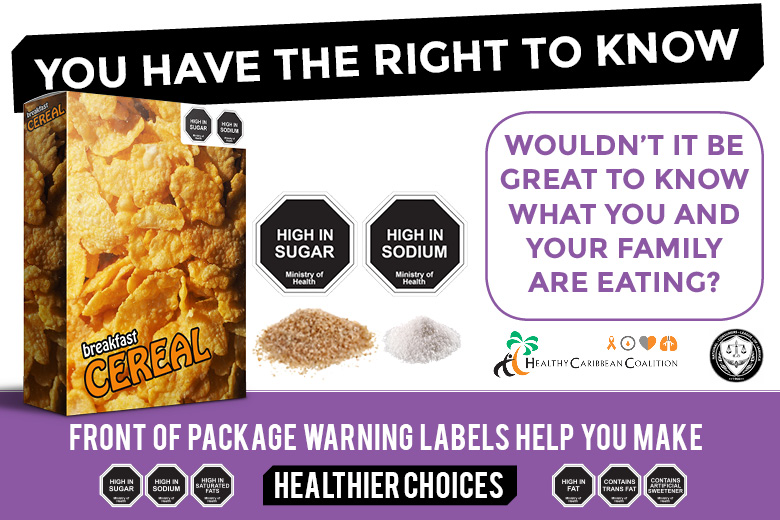Front-of-Package Warning Labels Needed on Processed Foods
- April 14, 2025
- Posted by: CEFROHT Reporter
- Category: News Updates

Public health experts call for mandatory front-of-package warning labels on processed foods, guided by a Nutrient Profile Model (NPM), to combat rising diet-related diseases.
Public health advocates are urging policymakers and regulatory agencies to implement Front-of-Package Warning Labels (FoPWL) on all pre-packaged, processed foods in Uganda and across the East African region. This call is based on the need to protect consumers through clear, accessible information about the health risks posed by certain food products.
Experts recommend that these warning labels be applied according to a Nutrient Profile Model (NPM)—a scientific tool used to determine whether a food product is high in critical nutrients such as sugar, salt, and saturated fat. This approach ensures that labeling is evidence-based, transparent, and non-discriminatory. “Clear warning labels help consumers make better choices. When products are high in harmful ingredients, people should be alerted in a simple and visual way—right on the front of the package.”
Why It Matters:
Rising non-communicable diseases (NCDs) such as diabetes and hypertension are strongly linked to ultra-processed food consumption.
Children and low-income populations are most vulnerable to misleading marketing and hidden health risks in packaged foods.
Front-of-Package Warnings empower consumers and complement nutrition education efforts.
What’s Next?
Advocates are calling for:
- Legal frameworks to make warning labels mandatory
- An adopted evidence based harmonized Nutrient Profile Model
- Strong enforcement by national food authorities and UNBS
This move is part of a broader push toward food systems reform, aimed at ensuring healthier diets and better-informed consumers.
Call to Action:
We call upon the Ministry of Health to adopt the evidence based Nutrient Profiling Model and pass the Front of Pack Warning Labelling Regulations and encourage government agencies, civil society organizations, and consumers to support this initiative and demand healthier, more transparent food systems.
